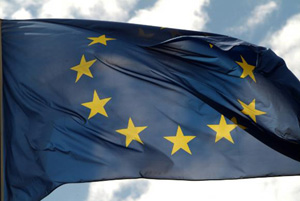
The European Commission’s long standing commitment to visa free travel for the people of the Western Balkans was confirmed today with the adoption of a proposal for granting visa free travel to the citizens of the former Yugoslav Republic of Macedonia, Montenegro and Serbia. Today’s proposal enables the citizens of these three countries to travel to the Schengen countries* with the new biometric passports. The Commission’s proposal needs to be approved by the Council after having consulted the European Parliament. The Commission remains committed to visa liberalisation for the citizens of Albania and Bosnia and Herzegovina too. However these countries have not yet fulfilled the conditions to be included in today’s proposal. If the pace of reforms is maintained and if all the conditions are fulfilled, the Commission could envisage making a new proposal including these countries by mid-2010.
When presenting the Commission’s proposal Vice President of the Commission in charge of Justice, Freedom and Security Jacques Barrot said:
“Our proposal brings truly good news to the people of the Western Balkans, in particular to the citizens of the former Yugoslav Republic of Macedonia, of Montenegro and Serbia. I know how much visa free travel means to them. Today’s proposal is the result of intensive and hard work for the authorities and the people of these countries in meeting the conditions. I congratulate them for this achievement”.
Enlargement Commissioner Olli Rehn added “It is our goal, and our firm conviction, that Albania and Bosnia and Herzegovina will follow suit soon. The roadmap is still valid, and it is still perfectly doable if the authorities of the countries put their full will into delivering now. If this progress continues apace, I believe both countries will soon catch up with their neighbours. If all the conditions are fulfilled, the Commission could envisage making a new proposal, which would include them, by mid-2010.”
Granting visa free travel is a cornerstone of the EU’s integration policy for the Western Balkans. Facilitating people to people contacts enhances business opportunities and gives the possibility for the people of the region to get to know the EU better. However, visa free travel is only possible if the necessary security requirements are met. This is why the Commission launched a dialogue on visa liberalisation with the Western Balkans countries. On the basis of roadmaps presented by the Commission, the countries have made important progress in improving passport security, in strengthening border controls, in reinforcing the institutional framework to fight organised crime and corruption, as well as in external relations and fundamental rights.
The Commission has been thoroughly monitoring their preparations. The conditions are the same for every country. The former Yugoslav Republic of Macedonia met the necessary conditions. For Serbia and Montenegro the entry into force of the visa waiver will depend on fulfilment of all remaining open benchmarks of their respective roadmaps by the date of adoption of this proposal by the Council. Albania and Bosnia and Herzegovina still need to continue their efforts to get a positive recommendation from the Commission.
In Albania and in Bosnia and Herzegovina shortcomings still exist in the institutional framework to fight against organised crime and corruption, in addressing weaknesses in the procedure for delivering passports, and in the areas of border and migration management.
Residents of Kosovo (under UNSCR 1244/99) will not yet benefit from visa liberalisation either. The technical requirements for visa liberalisation have not yet been met on the territory of Kosovo. The Commission in this regard will continue to work closely with both the Serbian and Kosovo authorities and explore options for addressing the visa issue in the future.
